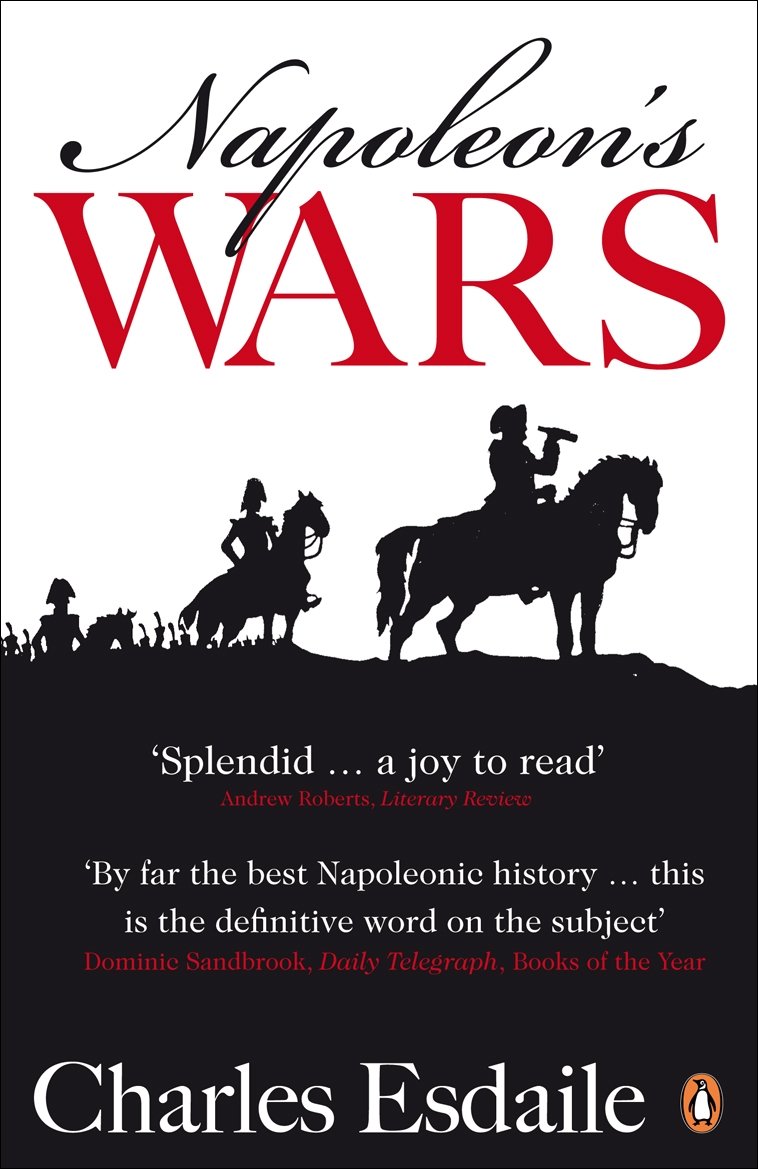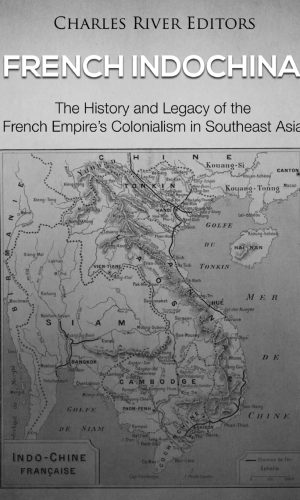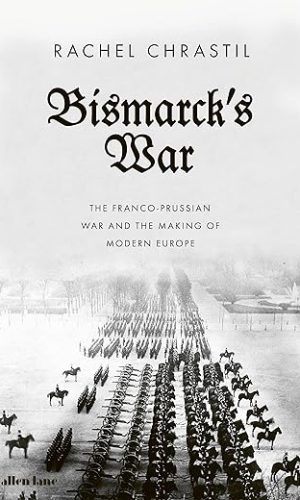Napoleon’s Wars: An International History, 1803-1815
£13.60£16.10 (-16%)
No other soldier has provoked as much anger or as much fervour as Napoleon Bonaparte. Was he a monster, driven on by an endless, ruinous quest for military adventure – or was he a social and political visionary, brought down by petty reactionaries clinging to their privileges?
Charles Esdaile’s major new work reframes our understanding of Napoleon. Napoleon’s Wars looks beyond the insatiable greed for glory to create a new, genuinely international context for Napoleon’s career. The battles themselves Esdaile sees as almost side-effects, the consequences of rulers being willing to take the immense risks of fighting or supporting Napoleon – risks that could result in the extinction of entire countries and regimes.
Read more
Additional information
| Publisher | 1st edition (28 Aug. 2008), Penguin |
|---|---|
| Language | English |
| Paperback | 672 pages |
| ISBN-10 | 0141014202 |
| ISBN-13 | 978-0141014203 |
| Dimensions | 13.34 x 3.18 x 19.81 cm |









by Eoghan Fallon
As described and great book too
by Ronald Delval
While the author tries an interesting new take it’s bias is disturbing.
Pro British and heavily anti Napoleon this is one of those books that aims to write for the anti-Napoleon camp and ONLY the anti-Napoleon camp.
Dissapointing.
by JGL
Napoleon’s story has been told again and again and there is a veritable industry set around the Napoleonic wars, but this book aims to be different. It doesn’t go over old ground recording every detail of Napoleon’s campaigns and battles (indeed there are none of the usual maps and diagrams of the famous battles) but seeks to show the effect Napoleon had on Europe at the time and the consequences of his actions. There are some lovely colour plates and some useful maps of various bits of Europe, but ironically by taking this less obvious path the author loses some of the impact of the period and some passages drag a little. On the whole though this is still a readable book but better informed students of the period will have to put it in it’s appropriate place in the Napoleonic library.
by glbainbridge
OKAY
by joethelad
Brilliant
by Mr. R. G. Hanna
A superb book. The author shows an understanding of the period that is unrivalled in any other general history of the Napoleonic wars. International relations, rather than military developments, are the focus of the work and even those with a longstanding interest in this era will emerge enlightened. It is, moreover, writen in an engaging, accessible and often entertaining style.
by JWH
This history of the Napoleonic Wars is different from the usual fare, since it focuses heavily on the politics and strategy of the contending parties rather than the details of the operations or the battles. Economic factors are explained, although not in great detail. This is all a very useful shift in viewpoint, since so much of the literature concentrates on the details of those battles, or the personality of Napoleon, or the character of the armies and navies involved. Readers expecting concentration any of those things might well be disappointed although the character of the Emperor can hardly be ignored when considering the strategy and politics of the period, and is thus given due attention.
The author is a well-known critic of Napoleon but given that, I thought that his treatement of the Emperor relatively fair and all of his criticisms substantiated. However, given the layers of hagiographical literature built up around the Emperor, there are inevitably going to be some facts and interpretations that modern fans of the Emperor will find intensely irritating.
The central strategic fact of the Napoleonic Wars – that Napoleon’s France could only be defeated by the concerted efforts of all of the other major powers – is given due prominence, and most importantly, why those concerted efforts did not happen until late on. This explains the emphasis on areas that are neglected in other histories, particularly the relations of Russia with the Ottoman Empire and Persia, since the attention of Russia could be, and often was, diverted by problems and opportunities in the Balkans and Caucasus: Esdaile makes the provocative point that the most important conflict of the period was that between Russia and Persia, since Russian success ensured that Central Asia would eventually come under Russian, not Persian domination. Other neglected areas – Britain’s relations with Sweden and Sicily for example – are also covered in some detail.
The writing is quite dense, although thankfully jargon-free. However, although the book is full of interest for those interested in political strategy and international affairs, it doesn’t have the liveliness that some of the accounts of the campaigns and battles have. This book is therefore recommended to the more serious student of the period and/or for those more interested in the political side of the conflict. It is a very useful resource for those who need more context for the character of the Emperor or the warfare of the period, but not those readers whose interests are more limited in focus.
by Randa El Meleigy
It’s a good read.